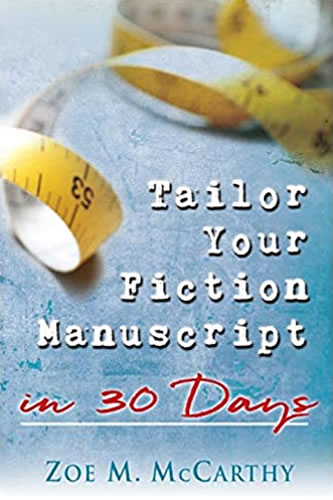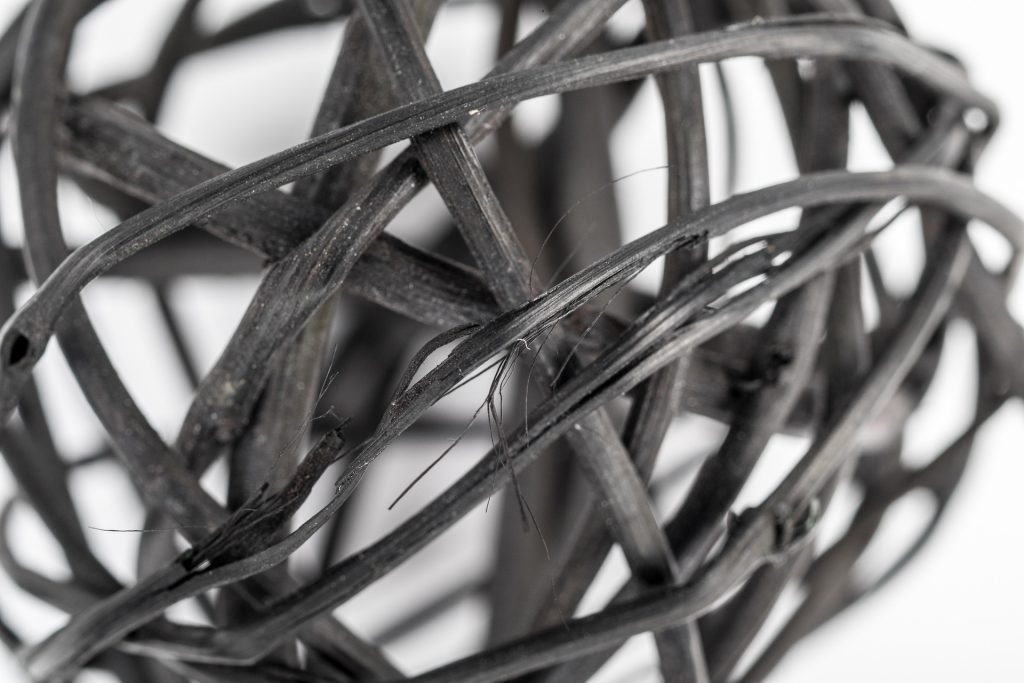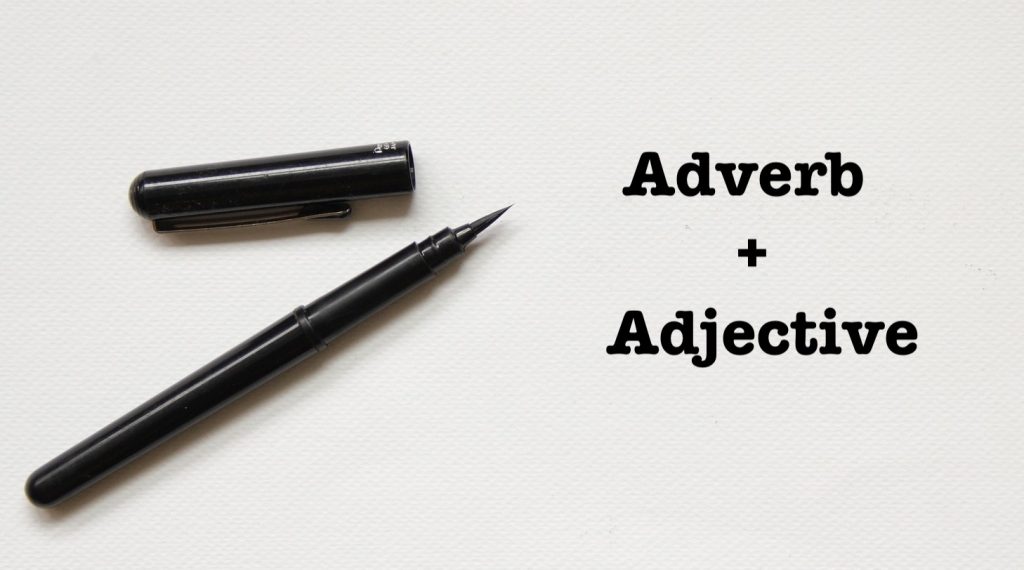

Tailor Your Fiction Manuscript is a self-editing encyclopedia! Each chapter sets up the targeted technique, examples show what to look for in your manuscript, then proven actions are provided to take your writing to the next level. Whether you are a seasoned writer or a newbie, you need this book!
—Sally Shupe, freelance editor, aspiring author
We’ll look at fourteen cases showing when to use a hyphen in a compound adjective.
1. Compound Adjective
Generally, you’ll use a hyphen between two or more words to create a compound adjective that is placed before a noun. The created compound adjective will have a single idea different than the meanings of the individual words.
Examples of compound adjectives found in my dictionary:

push-button process
cold-blooded heart
five-star rating
mean-spirited attitude
nail-biting experience
stomach-turning odor
Examples I created:
two-job dilemma
strawberry-flavored kiss
gross-smelling cleaner
falling-over house
moss-covered stone
hair-frizzing fear
*Don’t use a hyphen if two words before a noun don’t form a new meaning as a unit. For instance, friendly big dog or pretty yellow flower don’t work with hyphens. Friendly-big and pretty-yellow don’t stand as single-meaning
2. Compound Adjective Follows a Noun
Usually, when a compound adjective follows a noun, no hyphen is necessary, because the relationship is clear without a hyphen, or the sentence is written differently.
Examples:
The process was a series of pushing buttons.
His comment was cold blooded.
He gave the movie five stars.
Her attitude was mean spirited.
The experience was nail biting.
The odor was gross smelling.
3. Confusion

If there’s a possibility for confusion add a hyphen.
Examples:
Meg wore the little used coat to dig potatoes.
Did Meg wear the little used-coat or the little-used coat?
Ella passed her difficult driving test.
Was the test for difficult driving (difficult-driving test) or was the driving test difficult?
4. Suspended Hyphens
Usually when two or more compound adjectives with a common base come before a noun, write them as in the examples below.
Examples:
The doctor prescribed the pills for the one- to two-week illness.
The task force came up with short- and long-term solutions.
5. Compound Adjective Used in Ages
Examples:
The four-year-old school had a huge crack in the basement wall.
For ages of children, an adjective or a noun will have hyphens.
Noun: Jenny has a four-year-old.Adjective: Jane had three-year-old twins.
6. Proper Nouns
When proper nouns are used as compound adjectives, don’t use hyphens.
Examples:
Jaxon is a United States Marine.
The store sold South American pottery.She was a National Book Award winner.
7. Compound Adjectives in Titles

Make sure you capitalize all the words inside a compound adjective in a title.
Examples:
You Can Become a Self-Assured Man
How to Repair Plaster-Wall Cracks
8. Well-Known Expressions
The editors who edit my books do not hyphenate some well-known expressions.
Examples:
high school: Mark asked Jenna to the high school prom.
department store: Candy tried on the department store dress.
small business: The small business doors opened at nine.
9. Prefixes and Suffixes
Usually, words with prefixes and suffixes are not hyphenated.
Examples:
Scott underwent extracranial surgery. (prefix: extra-)
Cassie loves multipurpose tools. (prefix: multi-)
Mick promoted a cleanliness mantra. (suffix: -ness)
It was a disastrous party. (suffix: -ous)
Below are some exceptions.
Use a hyphen when a prefix is joined with a capitalized word.
Examples:
We had a pre-Thanksgiving gathering.
Disliking apple pie is an un-American quality.
Compound adjectives that have prefixes self-, all-, and usually non- should be hyphenated.
Examples:
Jack was a self-employed man.
Jill gave Peter and all-knowing smile.
I prefer non-alcoholic drinks.
Compound adjectives that have suffixes -style, -free, and -based should be hyphenated.
Examples:
Haley adorned her walls with Monet-style paintings.
I wished John would give up sugar-free beverages.
Kristin was allergic to sulfa-based drugs.
10. Compound Adjective Formed with an Adverb

A hyphen is unnecessary when the compound adjective is formed with an adjective and an adverb, especially adverbs ending in -ly.
Examples:
Colby was a highly efficient welder.
I have a finely tuned system.
You’ve made a poorly constructed model.
11. Hyphen with a Present or Past Participle
When a present participle or a past participle is used in a compound adjective, use a hyphen.
Examples:
What a fine-looking man he is. (present participle)
I prefer grass-fed cattle. (past participle.)
12. Compound Adjectives with Numbers
When numbers are place at the front of a compound adjective, use a hyphen.
Examples:
We leased a second-story apartment.
The speaker gave a twenty-minute speech.
We’re going on a seven-day cruise.
13. Compound Adjectives with Fractions
Examples:
We lacked a two-thirds quorum.
Phil presented a half-baked plan.
14. Comparative & Superlative Compound Adjectives AND a Participle
When this case arises, don’t use a hyphen.
Comparative words are like: meaner, faster, lower.
Superlative words are like: slowest, meanest, worst
Examples:
My hometown was the fastest growing city in Florida. (Participle: growing)
My painting was the ugliest looking piece in the art show. (Participle: looking)
Which hyphenating problem crops up for you most?

Need to rework your book? Zoe M. McCarthy’s step-by-step reference guide leads you through the process, helping you fight feeling overwhelmed and wrangle your manuscript into publishable shape in 30 days. Tailor Your Manuscript delivers a clear and comprehensive action plan.
—Elizabeth Spann Craig, Twitteriffic owner, bestselling cozy mystery author
Tailor Your Fiction Manuscript in 30 Days is chock-full of practical techniques. Numerous examples clarify problem areas and provide workable solutions. The action steps and blah busters McCarthy suggests will help you improve every sentence, every paragraph of your novel. If you follow her advice and implement her strategies, a publisher will be much more likely to issue you a contract.
—Denise K. Loock, freelance editor, lightningeditingservices.com






Good tips, Zoe.
Thanks, Sally.